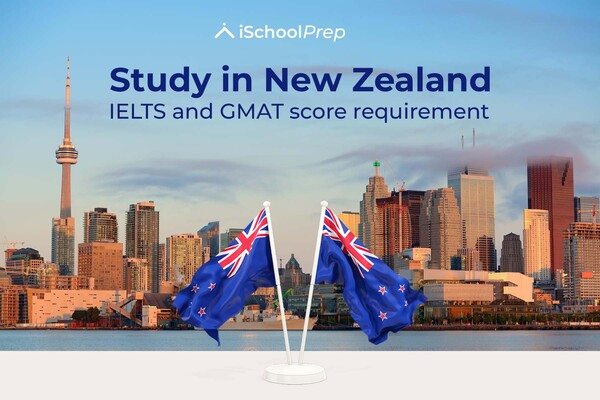Table of Contents
Harvard Business School is a dream destination for many MBA applicants. If you’re one of them, your GMAT score can make or break your chances. Get ready to learn how to master the test and pave the way to your success.
GMAT Score for Harvard: An Overview
Are you dreaming of attending Harvard Business School, one of the most prestigious and highly-ranked MBA programs in the world? If so, you’re not alone. With thousands of applicants competing for a spot at Harvard each year, competition is fierce.
However, there is one crucial factor that can help set you apart from the rest is your GMAT score. In this blog, we’ll delve into the world of the GMAT and explore what it takes to achieve a score that will catch the eye of Harvard’s admissions committee. Get ready to roll up your sleeves and start mastering the GMAT for Harvard. Your ticket to Harvard awaits!
About the GMAT Exam
The GMAT Exam 2025 refers to the updated and modernised version of the Graduate Management Admission Test called the GMAT Focus Edition. This version has been redesigned by GMAC (Graduate Management Admission Council) to better reflect the skills needed in today’s business environment and to simplify the test-taking experience.
GMAT Focus Edition 2025: Exam Pattern
As of 2025, the GMAT Focus Edition is the current format of the Graduate Management Admission Test (GMAT), designed to assess skills relevant to today’s business environment. Here’s an overview of the exam pattern.
| Section | Number of Questions | Duration | Question Types | Score Range |
| Quantitative Reasoning | 21 | 45 minutes | Problem Solving (Arithmetic, Algebra) | 60–90 |
| Verbal Reasoning | 23 | 45 minutes | Reading Comprehension, Critical Reasoning | 60–90 |
| Data Insights | 20 | 45 minutes | Data Sufficiency, Multi-Source Reasoning, Table Analysis, Graphics Interpretation, Two-Part Analysis | 60–90 |
| Total | 64 | 2 hours 15 minutes | 205–805 |
- Total Duration: 2 hours and 15 minutes
- Score Range: 205–805
- Breaks: One 10-minute optional break
- Question Review: You can bookmark and review up to 3 questions per section
The GMAT Score Trend of Harvard Business School
Harvard Business School (HBS) has experienced a notable evolution in GMAT scores over recent years, reflecting its increasingly competitive admissions landscape.
GMAT Score Trends at HBS:
Median GMAT Scores:
- For over a decade, the median GMAT score at HBS remained steady at 730.
- In the MBA Class of 2025, this median increased to 740, marking the first rise in 13 years.
- The Class of 2026 maintained this median GMAT score of 740.
GMAT Score Ranges:
- For the Class of 2026, the total GMAT scores ranged from 540 to 790.
- The middle 80% of scores fell between 700 and 770, indicating a highly competitive applicant pool.
Shift towards GRE Submissions
In recent years, HBS has observed an increase in applicants submitting GRE scores:
- In the Class of 2026, 63% of students submitted GMAT scores, while 41% submitted GRE scores.
- This represents a notable shift from previous years, reflecting the school’s openness to diverse standardised testing options.
Implications for Applicants
While a high GMAT score enhances an application, HBS evaluates candidates holistically. Exceptional leadership, professional achievements, and unique personal qualities can significantly influence admissions decisions, even for applicants with GMAT scores below the median.
In summary, the GMAT score trends at HBS underscore the school’s rigorous selection process and the importance of presenting a well-rounded application.
What GMAT Score do I Need for Harvard
- Harvard Business School (HBS) does not set a minimum GMAT score for admission; instead, it evaluates applicants holistically, considering various aspects of their profiles.
- For the MBA Class of 2026, the GMAT scores ranged from 540 to 790, with a median score of 740. Notably, 63% of enrolled students submitted GMAT scores, while 41% submitted GRE scores, indicating the school’s acceptance of both tests.
- While a higher GMAT score can enhance an application, HBS places significant emphasis on leadership qualities, professional accomplishments, and personal attributes.
- Therefore, applicants with GMAT scores below the median may still be competitive if they demonstrate exceptional strengths in other areas.
- Once the desired score has been obtained, the next step is to prepare for the other critical components of your application.
- Polish your application, collect strong letters of recommendation, and write an outstanding essay. Begin interview preparations as soon as you know your score is within the required range, as the chances of moving on to the next stage of admission are high.
An Outstanding Application will Increase Your Admission Chances
- Your letters of recommendation are a critical component of your application.
- Request these at an appropriate time from former college teachers or managers you have worked with in your current or previous job.
- Conduct thorough research. Before you begin preparing for your GMAT exam, make sure you are aware of the most recent trend in GMAT score cut-offs for Harvard so that you can set a goal for yourself.
- Build your profile carefully, consider whether your current work experience is sufficient for your Harvard application, and consider completing an internship or similar in your field of interest to add to your profile.
- Create an excellent essay. Be genuine and succinct.
Key Takeaways
- GMAT is crucial for acceptance into the Harvard Business School’s MBA program.
- A score between the range of 750 and 800 will set you on the right track for acceptance into Harvard.
- You must also focus on the other areas of your application, as your GMAT score only makes up 22% of the weightage in your application.
We hope this guide has shed light on the importance of the GMAT score in securing admission to Harvard Business School. While achieving a high score can be challenging, it’s not impossible with dedication, effort, and a solid study plan.
Remember, there’s no one-size-fits-all approach to acing the GMAT, so don’t hesitate to experiment with different strategies and seek support from your peers, mentors, or GMAT prep resources.
If you have any questions or concerns about the GMAT or Harvard’s admission process, feel free to reach out. Good luck on your GMAT journey!
Like this blog? Read also: MBA in Canada without GMAT: Everything You Need To Know
FAQs
Question 1: Is the GMAT required for an MBA?
Answer 1: The GMAT exam is required for the vast majority of full-time MBA programs. Therefore, you should strive for a competitive GMAT exam score when applying for full-time admission.
Question 2: What is the competition for the GMAT exam?
Answer 2: GMAT is taken by over 200,000 people each year, with only 6% scoring 720 or higher. These data points indicate that the GMAT is a difficult exam and that scoring 700+ requires effort.
Question 3: What is the duration of GMAT scores?
Answer 3: The GMAT test score is valid for five years after the test date.






